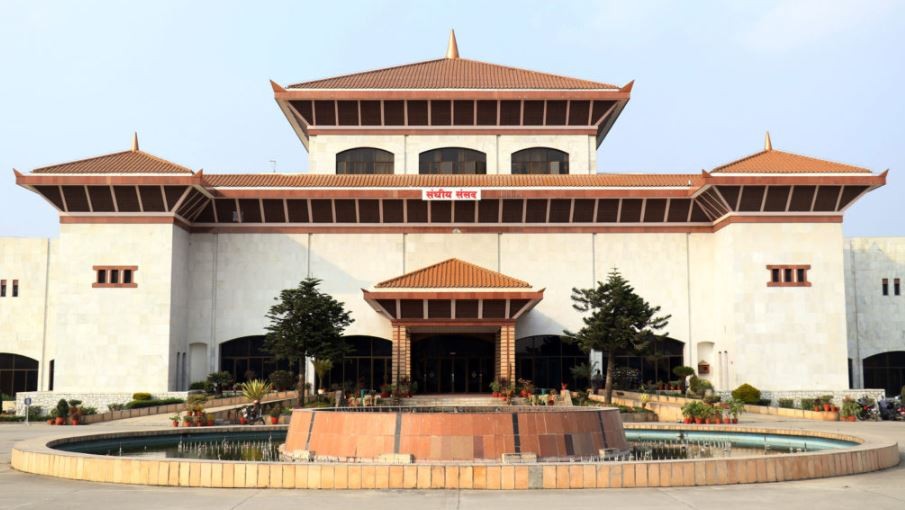Numerous bills await endorsement in Federal Parliament

By Ranju Kafle
Kathmandu, Dec. 12: Nearly five dozen essential bills are in various stages of certification in the Federal Parliament. However, the parliament has failed to carry out its function effectively, thanks to disturbances in its regular business in last two years.
Besides appointing a new Prime Minister and unveiling a supplement bill for annual appropriation, not a single legislation was certified in the last session of both Upper and Lower Houses.
Firstly, the government ignored the active role of the parliament and kept it jobless for a long time. Then after, repeated dissolutions and reinstatement began. And then the government itself changed.
Kashiraj Dahal, a legal expert, said that federal legislature halt not only hampered lawmaking, it also had a serious bearing on good governance and several other fronts. “Leaders don’t hesitate to defend themselves in the parliament in democracy,” he said. According to him, the government should provide enough business to make the parliament vibrant.
“Lingering for long had a chain reaction; provincial government and local bodies draft laws relying on the federal provisions,” he said.
Formulation of coalition government ensured a sort of political stability in the country but it could not stop the trend of avoiding the parliament and issuing ordinances where they needed.
Dr. Rojnath Pandey, secretary in parliament secretariat, said that they had a schedule of tabling six ordinances in the first session of the parliament on Tuesday. “Issues and agendas have not been finalised for the session, however we have prepared well to convene the session of both Houses from Sunday,” he said.
The President has summoned the session of federal parliament from Tuesday (14th December) afternoon at 4:00 PM. Winter session is mostly meant for legislative jobs and the government is under pressure to endorse as many bills as it can on time.
However, the main opposition CPN-UML is not quite ready to cooperate for a smooth session. UML had obstructed almost all the House sessions previously. Annual appropriation bills were endorsed amidst obstruction. And the House prorogued on November 2 without legislative work.
Khimlal Bhattarai, whip of the party in the National Assembly, said that they can’t cooperate until and unless the government heeds their voice. “We have the same agenda for this session, the new session, too, is likely to see obstruction,” he added. He said the UML is unhappy with speaker Agni Prasad Sapkota because he did not remove their lawmakers from their posts on time which paved the way for party split.
Altogether, 57 bill drafts - 44 in the House of Representatives and 13 in the National Assembly – are in the trial phase. Almost 15 bill drafts
were registered in the secretariat and distributed among the lawmakers.
Other 31 bills - 25 in the House of Representatives and 6 in the National Assembly - are in under-trial phase. Similarly, 11 bill drafts are waiting for their turn of certification in various subject committees.
Most awaited bill drafts like Special Service Act, Citizenship Act (1st Amendment), Public Service Commission Act, Nepal Army (1st Amendment), Media Council are waiting for their turn in the House of Representatives. Bill drafts on Federal Civil Service, Jail, Drinking Water and Sanitation and Public Procurement (2nd Amendment) also are under-trial. Citizenship Act is under-trial for years after the installation of federalism.
Likewise, the Civil Aviation Authority Bill, Nepal Airlines, Yogmaya Ayurved University, Statistics Bill and some more are in the Lower House under trial. All of these documents were forwarded to the Lower House with messages from the National Assembly.
Some bill drafts like Human Rights, Insurance, Information Technology, Bank and Fiscal Institutions (1st Amendment) Food Security and Quality, Public Service Broadcasting, Corruption Control, and Commission for Investigation of Abuse of Authority (CIAA) are under-trial.
Saying yes or no to a controversial portion of any bill draft directly hampers the public image of political parties and they hesitate the breakthrough. Legal expert Dahal said parties can decide on the matter and endorse the bills after discussion but they are not doing so.
Recent News

Do not make expressions casting dout on election: EC
14 Apr, 2022
CM Bhatta says may New Year 2079 BS inspire positive thinking
14 Apr, 2022
Three new cases, 44 recoveries in 24 hours
14 Apr, 2022
689 climbers of 84 teams so far acquire permits for climbing various peaks this spring season
14 Apr, 2022
How the rising cost of living crisis is impacting Nepal
14 Apr, 2022
US military confirms an interstellar meteor collided with Earth
14 Apr, 2022
Valneva Covid vaccine approved for use in UK
14 Apr, 2022
Chair Prachanda highlights need of unity among Maoist, Communist forces
14 Apr, 2022
Ranbir Kapoor and Alia Bhatt: Bollywood toasts star couple on wedding
14 Apr, 2022
President Bhandari confers decorations (Photo Feature)
14 Apr, 2022











